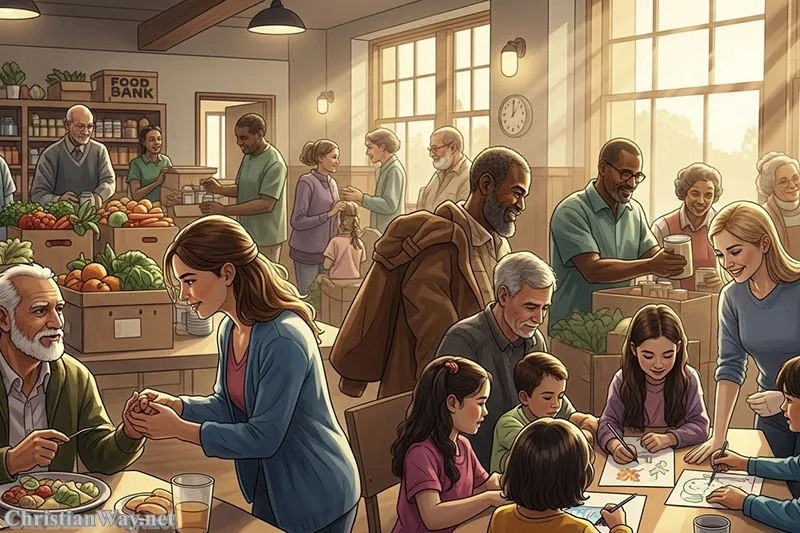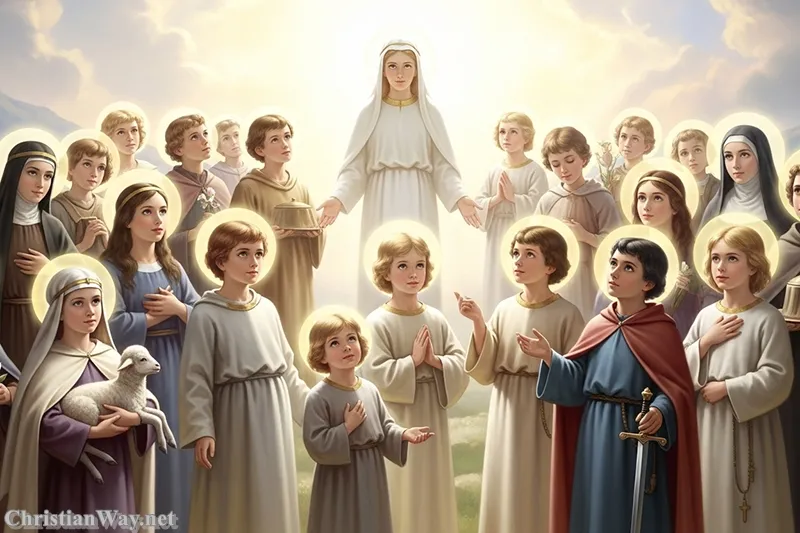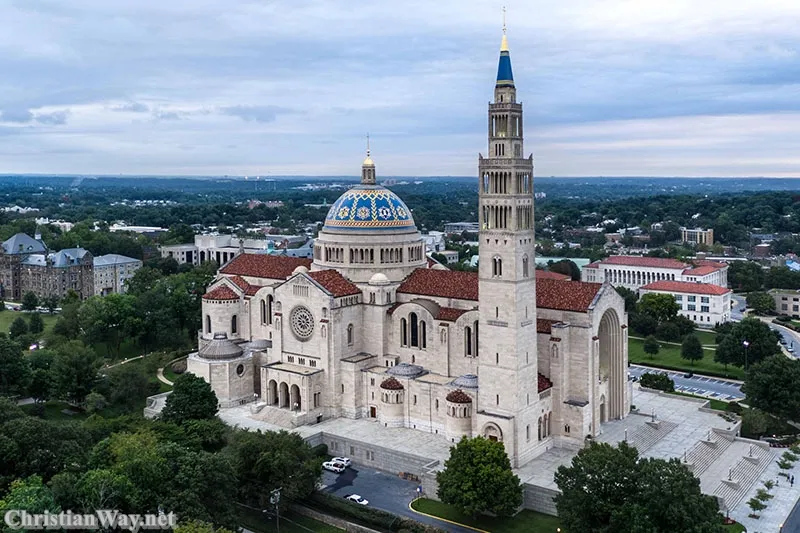Dear friends in Christ,
Every human heart longs to live in a world where love is not a word but a way of being — where mercy is not weakness but the very rhythm of life. In the Catholic faith, this longing is not a dream or a utopia; it is the beating heart of our social teaching. Love and mercy are not optional virtues for a few; they are the foundation upon which the Church builds her vision of society, justice, and human dignity.
Catholic Social Teaching (CST) is not simply a collection of principles or policies. It is a moral and spiritual vision born from the Gospel, flowing from the command of Christ: “You shall love the Lord your God with all your heart, and your neighbor as yourself” (Luke 10:27). Within this command lies the entire structure of Catholic moral life — love as its motive, mercy as its expression, and justice as its fruit.
In a world marked by divisions, inequality, and indifference, the Church reminds us that every act of mercy restores something of God’s original harmony. Every time love moves us to serve the poor, forgive an enemy, or defend the dignity of the vulnerable, the Kingdom of God quietly breaks into history. This is not sentimental love, nor mere kindness, but a transforming participation in the mercy of Christ Himself.

Let us walk together, then, through this sacred vision — to understand how love and mercy, when lived as Christ calls us to live them, become the soul of Catholic social teaching and the light by which we see humanity anew.
The Foundation of Love in Catholic Social Teaching
At the center of Catholic social teaching stands a truth that can never be replaced: God is love (1 John 4:8). This revelation is not abstract theology; it is the essence of reality. All creation springs from love, and all moral order flows from it. The dignity of the human person, the sanctity of life, the call to justice — each of these finds its meaning in God’s love.
The Church teaches that every human being is made in the imago Dei — the image of God. Because of this, the value of a person never depends on wealth, power, race, or usefulness. As Pope Francis has said, “Love for others, especially for the poor, is the key to understanding the Church’s social doctrine.”
To love as God loves means to seek the good of the other, not as an act of pity but of recognition — recognizing in every person the presence of Christ Himself. Jesus identifies Himself with the hungry, the stranger, the prisoner, and the sick: “Whatever you did for one of the least of these brothers and sisters of mine, you did for me” (Matthew 25:40).
Thus, love in Catholic social thought is not passive affection; it is a call to active charity and justice. It means refusing to remain indifferent when others suffer, and it demands that we shape society according to the values of the Gospel — solidarity, participation, and the common good.
Mercy: The Heartbeat of the Gospel
If love is the foundation, mercy is the pulse of the Gospel. Pope St. John Paul II, in Dives in Misericordia (“Rich in Mercy”), wrote that mercy is “love’s second name.” Mercy takes love and gives it flesh — it reaches beyond fairness to forgiveness, beyond justice to compassion.
The Cross of Christ is the supreme revelation of mercy. There, justice and mercy meet. Justice demands that sin be addressed; mercy chooses to absorb that debt in love. From that moment, mercy became the language of God’s kingdom — not the exception, but the rule.
In Catholic social teaching, mercy means recognizing that human frailty is not a cause for rejection but an invitation to healing. It shapes how we view prisoners, migrants, the poor, and even those who oppose us. Mercy allows us to see each person not as a problem to solve but as a brother or sister to love.
Pope Francis has called the Church to become a “field hospital after battle,” where wounds are tended before judgments are made. This is mercy at work — not a dismissal of truth, but truth infused with tenderness.
Love and Mercy in Action: The Social Dimension of Faith
Catholic social teaching insists that faith cannot remain private. True love of God expresses itself in love of neighbor, especially in the structures of society. As the Epistle of James reminds us: “Faith by itself, if it has no works, is dead” (James 2:17).
The Church identifies several key principles that express love and mercy in social form:
- The Dignity of the Human Person – Every policy, law, and economic system must respect human dignity. It is not granted by society; it is given by God.
- The Common Good – Love seeks the good of all, not just the privileged few.
- Solidarity – Mercy binds us to one another. The suffering of one is the concern of all.
- The Preferential Option for the Poor – Christ’s mercy draws us to stand with those who are most forgotten or oppressed.
- Subsidiarity – True mercy respects human freedom and local responsibility, encouraging participation rather than dependency.
In each of these, love provides the motive, and mercy the method. The two together form the living moral conscience of the Church’s social vision.
Love that Seeks Justice
One of the greatest misconceptions about love is that it is merely emotional — that to love is to feel kindly. But in the Catholic tradition, love is not sentiment but commitment. It leads us inevitably toward justice.
Justice, in its fullest sense, is love’s social expression. As St. Augustine wrote, “Charity cannot be true unless it seeks justice.” The prophets of Israel cried out against systems that exploited the poor or ignored the widow and orphan. Their message, fulfilled in Christ, still resounds: love without justice is incomplete.
Catholic social teaching therefore calls believers to transform not only hearts but also structures — to build economies that serve people, not the other way around; to reform laws that wound the vulnerable; to create cultures of life that honor both the unborn and the aged.
This is what it means to “do justice, love mercy, and walk humbly with your God” (Micah 6:8).
Mercy that Transforms the Heart
While justice orders society, mercy heals the heart. Without mercy, justice becomes rigid; without justice, mercy becomes sentimental. In Christ, the two are perfectly united — firm in truth, gentle in love.
Mercy transforms not only those who receive it but also those who give it. It purifies our motives and reshapes our desires. When we forgive, we become freer. When we show compassion, we draw nearer to the heart of God.
The saints lived this truth vividly. St. Vincent de Paul served the poor with tireless love; St. Teresa of Calcutta saw Christ in every suffering face; St. John Paul II forgave the man who tried to kill him. Their mercy was not weakness — it was strength made holy.
Through mercy, we come to see reality differently. No longer divided into “worthy” and “unworthy,” but as one family under the gaze of a merciful Father.
The Eucharist: The Source of Love and Mercy
At the center of Catholic life stands the Eucharist — the sacrament of love and mercy made visible. Every Mass is a school of social justice because it unites heaven and earth, rich and poor, saint and sinner.
In the Eucharist, Christ offers Himself for all. His sacrifice reminds us that no human being is expendable. To receive His Body is to be joined into one body — the Church — and to be sent forth into the world as agents of His mercy.
As Pope Benedict XVI wrote in Deus Caritas Est: “A Eucharist which does not pass over into the concrete practice of love is intrinsically fragmented.” The altar leads naturally to the streets, where the poor, the lonely, and the suffering wait to meet the living Christ in us.
Living Love and Mercy Today
To live Catholic social teaching is to let the love of Christ shape our relationships, our work, and our choices. It means asking difficult questions:
- How does my lifestyle affect others?
- Do I treat workers, strangers, and the poor with dignity?
- Am I merciful in my judgments and generous in my compassion?
It also means recognizing that mercy must extend to modern issues — refugees, climate justice, racial inequality, mental health, and digital isolation. Each is a place where Christ is waiting to be loved.
Our world does not need more ideologies; it needs more mercy. It needs hearts that listen, hands that serve, and voices that defend life in all its stages.
The Church as a Community of Love and Mercy
The Church herself must embody what she teaches. When communities live in love and mercy — forgiving one another, serving the poor, welcoming the stranger — they become signs of God’s kingdom.
Parishes that feed the hungry, schools that form conscience, hospitals that care for the dying — these are not “projects” of charity but acts of faith. They reveal a Church alive in the Spirit, faithful to the Gospel, and attentive to the wounds of the world.
In this way, Catholic social teaching is not a theory; it is the Gospel lived.
Reflect and Pray
Dear brothers and sisters, love and mercy are not lofty ideals — they are the path of every Christian. The more we allow them to shape our hearts, the more they will shape our world. In the end, all theology, all social teaching, and all moral effort find their fulfillment in love.
As St. Paul writes: “If I have not love, I gain nothing” (1 Corinthians 13:3). And as Jesus promised: “Blessed are the merciful, for they shall obtain mercy” (Matthew 5:7).
May our love be courageous enough to seek justice and our mercy deep enough to forgive. May our hearts, like Christ’s, remain open to all.
Let us pray:
Lord Jesus Christ, You are the face of the Father’s mercy and the fullness of divine love. Teach us to love as You love — with compassion, patience, and truth. Let our faith bear fruit in works of justice and mercy, that Your Kingdom may come among us. Amen.
— Fr. John Matthew, for Christian Way





